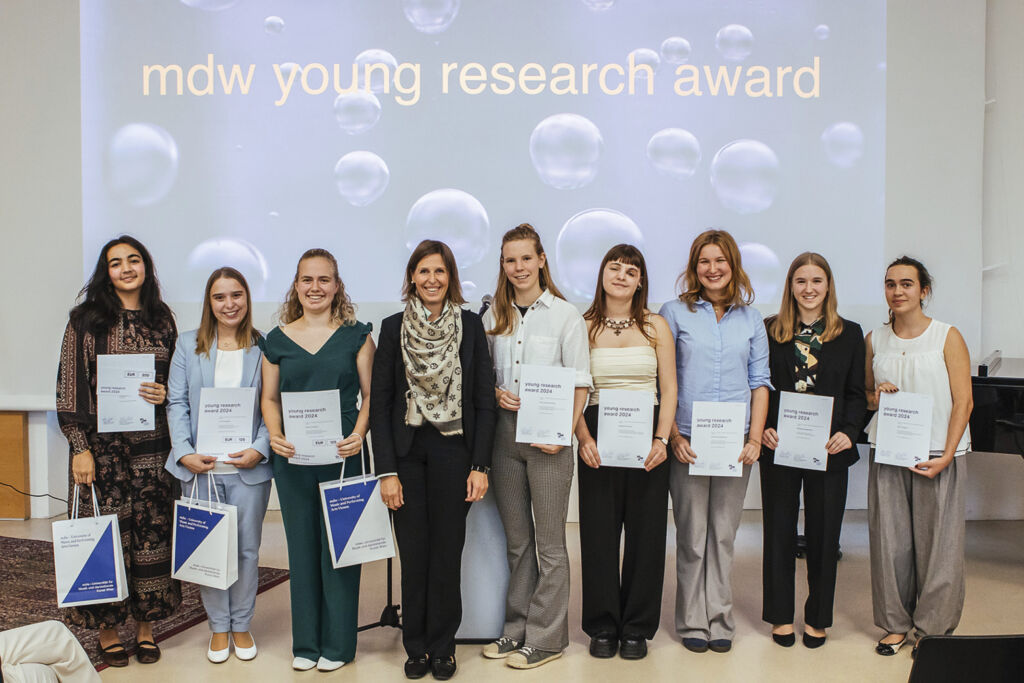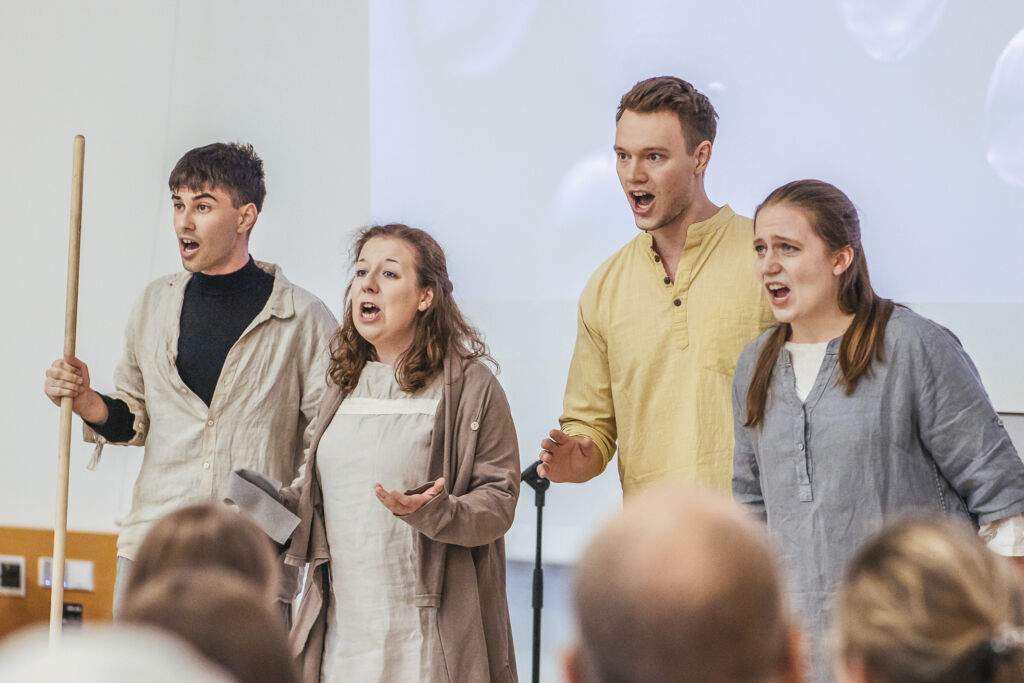Male vs. female gaze, music therapy in early childhood education, a brass band under National Socialism, and the socio-political potential of new musicals
Diving into research themes, pursuing one’s own questions, and learning to investigate said questions with rigorous academic methods and in accordance with personal interests: school students in Austria have the opportunity to do all of this as part of their school leaving examinations when they author their “pre-academic research thesis” (VWA) and/or diploma thesis, which they then present as part of their oral Matura exams. Since 2023, the mdw has been honouring outstanding papers of these types that pertain to music and the performing arts at large with the “mdw young research award (myra)”. Alongside providing some public recognition for these frequently ambitious papers, the point is to strengthen the connections between our university and schools as well as to lend visibility to disciplines and questions concerning music and other performing arts that interest young people and are also focuses of work at the mdw.

This past spring witnessed the second call for graduates of all school types who had completed the Matura during the previous school year (2023/24) to enter their VWAs or diploma theses on music and/or other performative art forms in the competition. 64 such papers from all over Austria reached us by the deadline and were evaluated by mdw experts in the corresponding fields. Even upon the Office of Research Support’s initial reading of these submissions, the breadth of topics and questions made quite an impression: they included music and health, film, voice training, composing, organology, and popular music as well as acoustics, gender studies, and cultural management, which made selecting winners an enriching challenge. Alongside a mark of “sehr gut” [very good], factors such as an interesting, original approach to one’s research question and topic, clear and stringent argumentation, selection of methods, and dealing critically and creatively with the topic and the employed sources represented the key criteria that were employed.
A shortlist was presented to the internal mdw competition jury’s interdisciplinary membership, and the high number of award-worthy papers truly did not make selection any easier—for these awards are intended in part to reflect the diversity of disciplines present at the mdw. The jury ultimately chose four papers to receive the 2024 mdw young research award and also decided to confer a further award, the “honourable mention”, with which an additional seven papers were recognised.
The formal award ceremony in the mdw’s Banquet Hall on 26 September, presided over by Vice Rector Barbara Strack-Hanisch, was attended by eight winners along with friends, relatives, advising teachers, and school representatives plus numerous mdw faculty members and administrators. An additional two 2024 myra winners accepted their awards by way of video messages. The campus tour preceding the ceremony gave interested school graduates an opportunity to get to know the mdw’s various buildings and chat with researchers and administrators.
The award ceremony itself included an opportunity for the awardees to briefly introduce their projects: in individual statements, they spoke about how their research questions had come about, their approaches, and how every answer had in fact led to new questions. In all of the winners’ presentations, their interest in pursuing further research came through clearly—as an “indefinable unease” with the portrayal of female characters in most familiar films and a concern for the right to self-representation, both of which were pursued by one author who had discovered the world of film and gender studies for herself; as two enthusiastic future pre-school school teachers’ advocacy of music therapy content as a component to be included in training and in everyday pre-school offerings; as engagement with the history of a researcher’s own local brass band and its entanglements during the National Socialist era; or as an interest in the socio-political potential of musicals that deal with urgently current themes in entertaining and artistically ambitious ways.

It was in light of the projects being recognised that mdw students lent the ceremony a musical frame—with A Ship Full of Friends (composed by Melinda Franzke) and Recorda Me (composed by Joe Henderson), performed by Mina Franzke and Lea-Carlotta Walenta on electric bass and double bass, which were followed by a medley of numbers from the musical Les Misérables performed by voice students.1 With the format of the VWA at Austrian academic secondary schools set to change and still other creative formats becoming eligible to be recognised for Matura credit, it will be interesting indeed to see just how next year’s myra will shape up!

